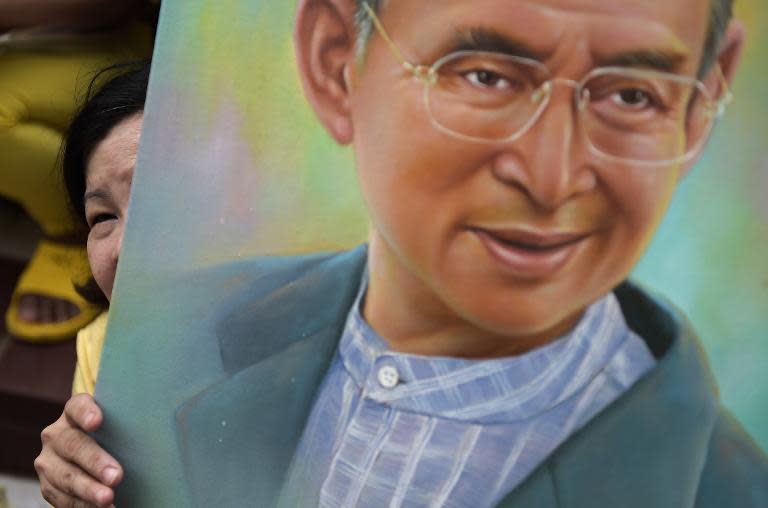Thai ex-PM Thaksin under investigation for lese majeste
Thai police are investigating whether fugitive former premier Thaksin Shinawatra committed royal defamation in a recent interview, authorities said Wednesday as they announced his passports had been revoked. The billionaire telecoms tycoon-turned-prime minister, who was toppled by a coup in 2006, sits at the heart of Thailand's bitter political divide and lives in self-imposed exile to avoid jail on a corruption charge. On Wednesday, the foreign ministry said it was asked to take action against Thaksin after police deemed that "part of his interview endangered national security". Last week Thaksin made rare comments to overseas media as the Thai military marked a year in power, although it was not immediately clear which interview he faces censure for. "That case (interview) is also under investigation for criminal prosecution on 112," the ministry said in a statement, referring to Thailand's controversial royal defamation law, which is one of the world's harshest. Under Section 112, anyone convicted of insulting the king, queen, heir or regent faces up to 15 years in prison on each count. Confirming the police probe, Deputy Prime Minister Prawit Wongsuwan told AFP that Thaksin's "remarks were detrimental to the state and the monarchy". Thai and foreign media routinely self-censor to avoid breaching the draconian lese majeste legislation, under which repetition of the alleged offence could itself break the law. In a video of an interview to Korean television in Seoul that went viral on Thai social media, the former premier made reference to those he thought were behind last year's coup. AFP were not immediately able to access a copy of the original broadcast. - Remove Thaksin's system - Last May Thailand's generals ousted the government of Thaksin's younger sister Yingluck in a coup shortly after she was removed as premier by a controversial court ruling following months of often violent protests against her administration. The junta said it was prodded into its putsch to restore order and protect the monarchy, headed by the revered but frail 87-year-old King Bhumibol Adulyadej. Convictions under lese majeste have surged since last May's coup. Opponents of the law say it has increasingly been used to stifle political opposition -- Thaksin has previously been accused of defaming the monarchy, including by the government in 2009. Parties led by or aligned to the Shinawatras have won every election since 2001, and they are loved in the nation's rural north for their populist policies. But the clan's enemies, including large swathes of the military, judiciary and royalist elite in Bangkok and the southern portion of the country accuse them of cronyism, corruption and financially ruinous politics. Thailand-based political analyst David Streckfuss said any potential lese majeste charge against Thaksin would tally with a wider campaign to cut his family out of Thailand's political future. "The whole coup and everything surrounding it was to keep the Thaksin system" at bay, he said. "That effort has had a massive impact on the basic rights of people. It's crippled democracy." In a CNN interview broadcast last week as Thailand marked a year since the military takeover, Thaksin said he would wait for the right moment to re-enter Thai politics. The foreign ministry also said Wednesday that two passports belonging to Thaksin had been cancelled with effect from May 26. Since going into self-imposed exile the former premier has travelled frequently from his base in Dubai. He is believed to hold passports from other countries.



